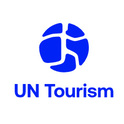The 2nd Conference on Tourism and Culture convenes global leaders in Oman
UNWTO and UNESCO: tourism and culture to advance the SDGs
Global tourism and culture leaders and stakeholders will convene in Muscat, capital city of the Sultanate of Oman, next 11-12 December to discuss the relation between tourism and culture. The event co-organized by UNWTO and UNESCO is held in the framework of the International Year of Sustainable Tourism for Development 2017 and follows up on the first World Conference on Tourism and Culture held in 2015, in Siem Reap, Cambodia. More than 20 Tourism and Culture Ministers have confirmed participation.
The Conference will explore ways to build and strengthen the partnerships between the Tourism and Culture sectors in the framework of the 2030 Agenda for Sustainable Development and the 17 Sustainable Development Goal (SDGs).
"Cultural tourism is growing, in popularity, in importance and in diversity embracing innovation and change. Yet, with growth comes increased responsibility, responsibility to protect our cultural and natural assets, the very foundation of our societies and our civilizations" said UNWTO Secretary-General, Taleb Rifai.
"Tourism is a key resource for local communities and for heritage preservation. Heritage, tangible and intangible, is a crucial to providing social stability and identity. Linking culture and tourism in the sustainable development process is vital if we are to achieve the Sustainable Development Goals" said UNESCO Assistant Director General for Culture, Francesco Bandarin.
Ahmed Bin Nasser Al Mahrizi, Minister of Tourism of the Sultanate of Oman highlighted that the host country will "ensure the success of the conference, convened for the purpose of exchanging experiences and ideas for achieving the sustainable tourism development."
The first session of the Conference will be a Ministerial Dialogue on Tourism, Culture and Sustainable Development that will address the policy and governance frameworks necessary to foster sustainable development models. The promotion of cross-cultural exchanges and the safeguarding of tangible and intangible heritage will be also analyzed as a tool to enhance the contribution of Tourism and Culture to the 17 SDGs. A Special Dialogue will be dedicated to Cultural Tourism as a Factor of Peace and Prosperity.
The Conference is complemented with three round tables. The first one on 'Tourism development and protection of cultural heritage and promoting responsible and sustainable tourism management at World Heritage sites'; the second on 'Culture and tourism in urban development and creativity' where encouraging innovation in cultural tourism products and services through creative industries will be tackled. The third session will explore the relevance of cultural landscapes in tourism and the integration of natural and cultural heritage philosophies and procedures for sustainable tourism development.
Some of the confirmed speakers include H.E. Ms. Eliza Jean Reid, First Lady of Iceland and H.E. Shaika Mai Bint Mohammed Al-Khalifa, President of Bahrain Authority for Culture, both Special Ambassadors for Tourism and the Sustainable Development Goals and H.R.H. Princess Dana Firas, President of Petra National Trust (PNT), Jordan & UNESCO Goodwill Ambassador.
About UN Tourism
The World Tourism Organization (UN Tourism) is the United Nations agency responsible for the promotion of responsible, sustainable and universally accessible tourism.
As the leading international organization in the field of tourism, UN Tourism promotes tourism as a driver of economic growth, inclusive development and environmental sustainability and offers leadership and support to the sector in advancing knowledge and tourism policies worldwide.
Our Priorities
Mainstreaming tourism in the global agenda: Advocating the value of tourism as a driver of socio-economic growth and development, its inclusion as a priority in national and international policies and the need to create a level playing field for the sector to develop and prosper.
Promoting sustainable tourism development: Supporting sustainable tourism policies and practices: policies which make optimal use of environmental resources, respect the socio-cultural authenticity of host communities and provide socio-economic benefits for all.
Fostering knowledge, education and capacity building: Supporting countries to assess and address their needs in education and training, as well as providing networks for knowledge creation and exchange.
Improving tourism competitiveness: Improving UN Tourism Members' competitiveness through knowledge creation and exchange, human resources development and the promotion of excellence in areas such as policy planning, statistics and market trends, sustainable tourism development, marketing and promotion, product development and risk and crisis management.
Advancing tourism's contribution to poverty reduction and development: Maximizing the contribution of tourism to poverty reduction and achieving the SDGs by making tourism work as a tool for development and promoting the inclusion of tourism in the development agenda.
Building partnerships: Engaging with the private sector, regional and local tourism organizations, academia and research institutions, civil society and the UN system to build a more sustainable, responsible and competitive tourism sector.
Our Structure
Members: An intergovernmental organization, UN Tourism has 160 Member States, 6 Associate Members, 2 Observers and over 500 Affiliate Members.
Organs: The General Assembly is the supreme organ of the Organization. The Executive Council take all measures, in consultation with the Secretary-General, for the implementation of the decisions and recommendations of the General Assembly and reports to the Assembly.
Secretariat: UN Tourism headquarters are based in Madrid, Spain. The Secretariat is led by the Secretary-General and organized into departments covering issues such as sustainability, education, tourism trends and marketing, sustainable development, statistics and the Tourism Satellite Account (TSA), destination management, ethics and risk and crisis management. The Technical Cooperation and Silk Road Department carries out development projects in over 100 countries worldwide, while the Regional Departments for Africa, the Americas, Asia and the Pacific, Europe and the Middle East serve as the link between UN Tourism and its 160 Member States. The Affiliate Members Department represents UN Tourism's 500 plus Affiliate members.
Rut Gómez Sobrino
Principal Media Officer
(+34) 91 567 81 60
UN Tourism
